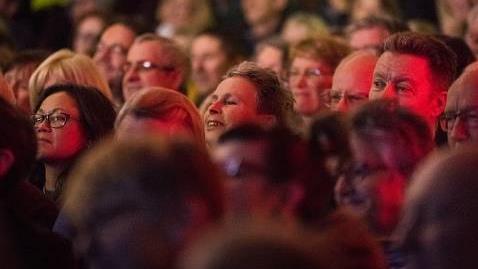
Lucy Delap, lecturer in modern British history at Cambridge University, focused on two peaks of feminist activity in the 20th century during her Hay Festival talk; the suffrage era and the women’s liberation movement of the 1970s and 80s.
The former was most recently celebrated with the erection of the statue of Millicent Fawcett. The plinth on which Fawcett stands carries the further images of 55 women - and four men, from establishment insiders to a radical vicar - who were part of the fight for women’s right to vote. “Feminism in this era deliberately included men and it loses that over the rest of the century, although that optic is back today,” said Delap.
The second period Delap considered was the women’s liberation movement over the course of the 1970s and 80s, examining men’s reactions to the movement - from men marching for abortion rights to the creation of anti-sexist groups by those who claimed that they too were suffering from patriarchy. Some women of this time had mixed feelings about these activities, questioning men’s ability to do childcare and felt that women should instead be paid to do it. Such discussions and a feeling that they were being mocked in some quarters made some men feel that women were not supportive of their efforts to explore and question masculinity. “There were mixed feelings on both sides about what each wanted,” said Delap, “it was very difficult to navigate.” For some men the questioning of masculinity combined with a feeling of rejection by feminists led to a tendency towards separatism, towards seeking the company of men, questioning what being a man was and a discussion of men’s rights. “In some cases it led to men blaming feminists rather than listening to them,” added Delap.
Yet, despite all of this, men did change over the next decades, she said, as can be seen in everything from the greater involvement of dads in childcare generally to the questioning of binary gender categories. “Change has happened,” she stated. “More generally masculinity has pluralised and homophobia has diminished. Men and boys have more choices. For young people, you could say that Grayson Perry is the end point, not Donald Trump.”